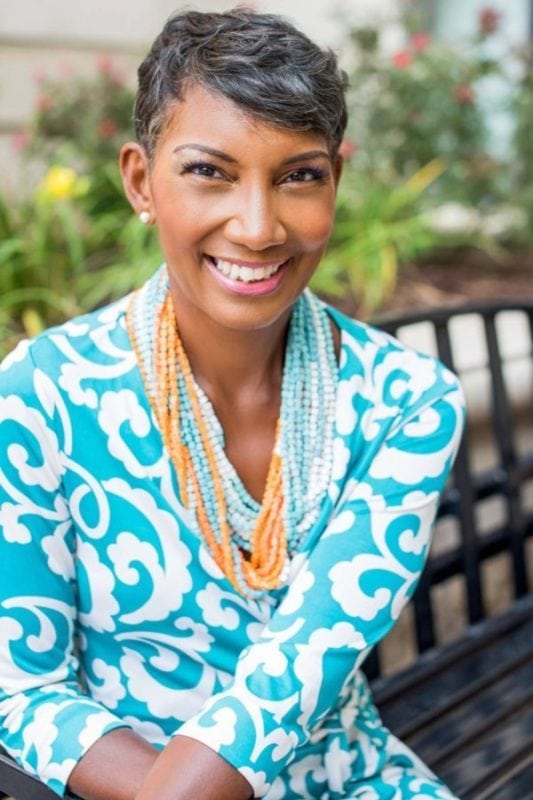Join Ricki Farley, Dr. Lisa Carey and Immunomedics on June 2, 2018 for a discussion on new treatments and what women need to know about this disease.
By Kellee Terrell
Back in 2011, Ricki Farley’s main goal was to see her daughter Haley enter her freshman year at the prestigious Dartmouth University. Then she was hit with a potentially deadly diagnosis: Triple negative breast cancer.
While this type of cancer is rare, 20 to 40 percent of African-American women diagnosed with breast cancer will have triple negative disease. Moreover, and triple negative is extremely aggressive and has a lower survival rate than other forms of breast cancer. However, Farley considers herself “one of the blessed ones” whose cancer is currently in remission thanks to a double mastectomy and multiple rounds of chemo and radiation. Now, the tenacious mother and entrepreneur is currently a board member of the Triple Negative Breast Cancer Foundation, helping them amplify the voices of those battling this disease, especially raising the alarm on how it impacts black women like her.
One way she plans on doing just that is with the help of an upcoming Facebook Live talk. During the June 2nd event, which is hosted by Immunomedics, Farley will sit down with Dr. Lisa Carey, Medical Director of UNC-Chapel Hill Breast Center, to talk about exciting new treatments coming down the pipeline, what women need to know about triple negative breast cancer and why we can’t ignore our breasts.
Black Health Matters: This Facebook Live event sounds amazing! What can we expect?
Ricki Farley: So much! I’m going to be sitting down with Dr. Lisa Carey, who is awesome. We’re going to talk about the basics of the disease, what it means to get that diagnosis, the importance of staying positive and the importance of women checking their breasts event month. We’re also going to take questions from those joining in, and we anticipate there are going to be a lot of questions. The goal here is to be a voice for women in the community and continue to keep pushing for more research and treatment options.
BHM: How far has the treatment come over the years?
RF: Currently, we don’t have therapy to prevent reoccurrence. I believe that’s because we only account for 15 percent of breast cancers, so who wants to invest into something that little? But thankfully, there are companies out there doing innovative work like Immunomedics, who have a metastatic drug [Sacituzumab Govitecan] that’s effective, has gone through a series of clinical trials and will hopefully receive FDA approval. Immunomedics is doing great work and I really believe in what they are doing.
BHM: Given our tumultuous past with the medical community, what’s your advice for other black women that are apprehensive about enrolling in a clinical trial?
RF: I would say don’t let fear stop you. And I get it, from Tuskegee to Henrietta Lacks, there have been some terrible things that have been done to us. To this day, I meet people that are terrified to enroll in clinical trials, but they may save your life. So, I’ve worked hard over these past years to try to break down that cultural stigma and educate our community on why these trials are so important for our survival. That, and black people need to be in clinical trials so that researchers have the appropriate data to learn how these drugs may work on us.
BHM: Finally, why should black women tune into the Facebook Live event?
RF: It’s my understanding that black women are three times more likely than white women to be diagnosed with triple negative breast cancer. It also hits us at a younger age. One of my youngest friends with TNBC died at the age of 28. This disease is aggressive and is killing us, so we need to better educate ourselves and this event will do just that
Interested in joining the conversation? Send your questions to advocacy@immunomedics.com and tune in on Saturday, June 2, from 4pm-6pm central time.
Triple Negative Breast Cancer Survivor Hosts Facebook Live Talk On Surviving The Disease And What You Need To Know About This Aggressive Form Of Cancer






